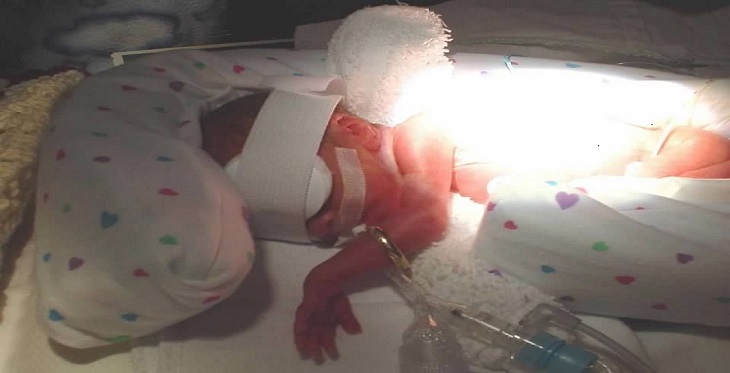From Dr. Steven Hansen’s Arizona Humane Society office, you may have heard a sigh of relief when Arizona Gov. Katie Hobbs signed Senate Bill 1053 into law on May 9. Beginning in August, veterinarians licensed in the state will legally be able to provide veterinary care through telemedicine, a care alternative many have become accustomed to on the human side of healthcare.
The Arizona Telemedicine Program Blog, Category: Patients
Imagine delivering a baby at 24 weeks gestation, or three months early. You deliver at the hospital closest to your house or the one that your OB/GYN recommends. Exploring the quality of care outcomes in that facility are not at the forefront of your mind. Wanting a healthy baby, or even a baby that simply survives, free of life-altering complications, becomes your goal. Quickly after this baby is born, he is whisked away to the neonatal intensive care unit (NICU), and it may be hours or sometimes even days before you see him again. The clinicians in that unit are trying their very best and they are providing excellent care: or are they? How do you know? Without questioning the intent or skill of clinicians, the data show that the quality of NICU care varies from unit to unit, and one complication in particular can vary widely: necrotizing enterocolitis (NEC). For this condition, there is a core of evidence-based prevention interventions that are essential to reduce the risk of contracting NEC. Perhaps most importantly among these tactics is giving baby the mom’s own milk, using a feeding protocol, limiting antibiotic and antacid exposure, and considering strategies for timely recognition. NEC-Zero is a prevention bundle for NEC and our team has made a concerted effort to share it freely so any unit in any location can deliver excellent care to any baby. However, improving quality is a difficult task, and it requires a committed team to implement the best evidence in the NICU.
Ruby and I have got it down pat. A bark at the back door tells me one of two things: "I want to go outside" or "I'm ready to come back in."
But a few months ago, when Ruby – my 65-pound standard poodle -- signaled her wish to come in, the next thing I noticed was how she was holding up her left front foot, while giving me her "Do something!" look.
Standing or walking on that foot was obviously painful, but I found no wound or bite to tell me what was wrong.
As a child and adolescent psychiatrist practicing in person for a number of years, and eventually making the shift to telepsychiatry, I have observed the subtle differences and nuances between the two mediums of care.
In my experience, telepsychiatry can be particularly powerful when working with children and teens. I had one experience with a 15-year-old adolescent who was admitted to the hospital for the fourth time with continued severe abdominal pain that could not be attributed to a medical cause. The hospital staff was puzzled, as the diagnostic tests did not show any signs of ailments and there were no physical afflictions present in the child. Interestingly enough, the teen had already been evaluated by another psychiatrist at the hospital, who was unable to get the teen to “open up.”
The care continuum increasingly relies on the skilled nursing facility to extend patient care beyond the acute care facility before the patient is sent home. The hospitals are under pressure to treat only the most acute conditions and then move the patient to facilities with lower costs of care. Accordingly, skilled nursing facilities are accepting patients who are frailer and more complicated. “Between 2005 and 2009, the percentage of Medicare SNF patients with eight or more co-mobidities increased from 74.8 to 86.9 percent..” And, the “proportion of patients in SNFs categorized as having major or extreme severity of illness increased from about 45 percent in 2005 to 53 percent in 2009.”




